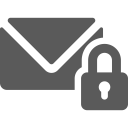COVID-19 Digital Impact and VPN Usage
The coronavirus pandemic has brought with it a storm of unexpected consequences, many stemming from the quarantine and tracing measures that have been taken around the globe. One of these unusual effects is the recent surge in VPN usage. Obviously, with more people confined to their homes, the increase makes sense, but there’s another reason behind it.
Quick stats
- VPN usage peaks in March 2020, Italy +160%, The US +124%, Spain +58%, Germany +40% (statista)
- Social media platforms see more usage. Facebook +27%, Netflix +16%, Youtube +15.3%, TikTok +15.4% (nytimes)
- Video services for work and school see rapid increase in daily users, Zoom 3x more (over 6 million), Goolge Classroom 2x more (over 4 million), Microsoft teams 2x more (over 2 million) (nytimes)
- Due to the COVID-19 global pandemic, online crimes reported to the FBI have quadrupled from 1,000/day to 4,000/day. (nozominetworks)
Fears of Mass Surveillance
One of the primary strategies that some governments have deployed to try and slow the spread of COVID-19 is to roll out apps that are meant to trace which people have been in contact with infected people, and to give the government information that they can use to preempt new outbreaks.
While many of these apps have been opt-in, some are mandatory under certain circumstances. In Russia, authorities have reportedly considered introducing a surveillance app that migrant workers would be required to download on entering the country, and in Qatar and other countries, contact tracing apps are mandatory for everyone.
Israel has made use of data that had already been collected to gain information on the flow of the coronavirus, and there’s no telling how many other countries have done the same without informing their citizens.
Some countries take more creative approaches, like Bahrain, which implemented an opt-in app called BeAware, which uses a combination of social pressure and the promise of a reward to keep citizens at home. Users of the app can be spontaneously video called and placed on a game show where the host rewards them for being at home.
All of this has sparked fears among the international privacy community, with many worrying what the long-term effects of these increased surveillance measures could be in the countries in which they are being put into effect.
China’s current system, which assigns people a color based on how likely they are to infect somebody, is reminiscent of the Social Credit System, which would assign citizens a score based on a number of factors, including their perceived fiscal responsibility and their adherence to the law. It’s a system that could create social tension and potentially result in the persecution of those people with low rankings. The risk of infection must be weighed against the risk of injustice.
Parallels can also be drawn between the coronavirus crisis, which is wearing away at the opposition to surveillance in many nations, and the 9/11 attack in the United States, which served as a catalyst for the Patriot Act, which paved the way for much of the government surveillance currently going on in the USA.
The current situation in America is especially complex. The use of facial recognition to slow the spread of the virus is one thing, but its use to identify and punish protesters is something entirely different. Fortunately, IBM has washed its hands of facial recognition technology, and hopefully, other companies will follow.
How Much Surveillance is Necessary?
On the face of the matter, most of these measures are meant to benefit people and reduce the spread of the virus. When there’s more focus on surveillance than on testing, though, it speaks of different priorities.
The use of existing surveillance technology in many countries has helped them to manage their outbreaks, though that doesn’t necessarily justify the existence of those systems in the first place and the intrusive data collection policies. Given that they existed before the pandemic though, we shouldn’t be alarmed by seeing them used this way.
More attention should be paid to new surveillance systems and techniques that are being developed in previously privacy forward countries specifically to combat the pandemic. Once the virus has largely been defeated, what will become of those systems? Are the countries that built them simply going to throw away that investment?
More likely, some such systems will be integrated into surveillance programs for more general usage. There are countries, like France and Korea, which have taken care to make sure their strategies don’t infringe on the rights of their citizens. France is testing an AI system which would prevent security camera images from being stored, and Korea has made wearing the electronic wristbands they developed completely optional.
These sorts of efforts bode well for the future, but they aren’t ubiquitous. It’s going to be the responsibility of everyday citizens, our responsibility, to protect ourselves and our nations from taking surveillance too far. One way that people are doing it is by using VPN’s.
Why the Surge in VPN Use?
There are a few possible explanations for the increase in VPN usage, and more than likely the truth is a mixture of all of them to different degrees. As far as we’re aware, no studies or surveys have been published linking the phenomenon to a single, specific cause but rather a mixure of privacy tracing meassures, inside entertainment due to the quarantine, and work from home usage.
Firstly, of course, when people are forced to stay at home in isolation, they look for ways to keep busy. It makes sense that more people would be interested in using VPNs in conjunction with services like Netflix and Hulu to watch content that they are unable to access in their home countries. In face, the NY Times reported a significant increase in social media and entertainment platforms.
The other side of the same coin is that using a VPN allows access to different news sources. Many countries restrict their citizens’ access to news, especially surrounding topics that could be considered politically charged, like the coronavirus. As such, citizens attempting to stay informed on the international situation might turn to VPNs.
And, of course, VPN’s have a reputation for improving the privacy of their users and making their online activities harder to track. It’s easy to understand why privacy-conscious people would be drawn to them in a time when the specter of government surveillance is looming closer than ever before in so many places.
As to whether using a VPN will actually protect you from government surveillance, it depends on how motivated they are to know what you’re doing online. It’s been posited that the NSA is monitoring VPN services especially closely because of the likelihood that they might be used by amateur terrorists or aspiring rebels. Even if they aren’t, they could access your information any number of other ways, from wiretaps to in-person spying.
On the other hand, VPNs are useful in situations where a government or other group is trying to monitor an entire population with limited resources. Government systems can only handle so much data, and if every one of a country’s citizens uses a VPN, it could put a serious strain on their surveillance infrastructure. All the same, a VPN won’t stop a determined, well-resourced organization from getting your information.
What using VPN does do is show the world that there is a demand for privacy in internet use. It makes it clear to interested parties that people want to be able to send an email without having it read by big brother, thank you very much. As long as there is sustained interest in services like VPNs, online privacy will remain on the table.


